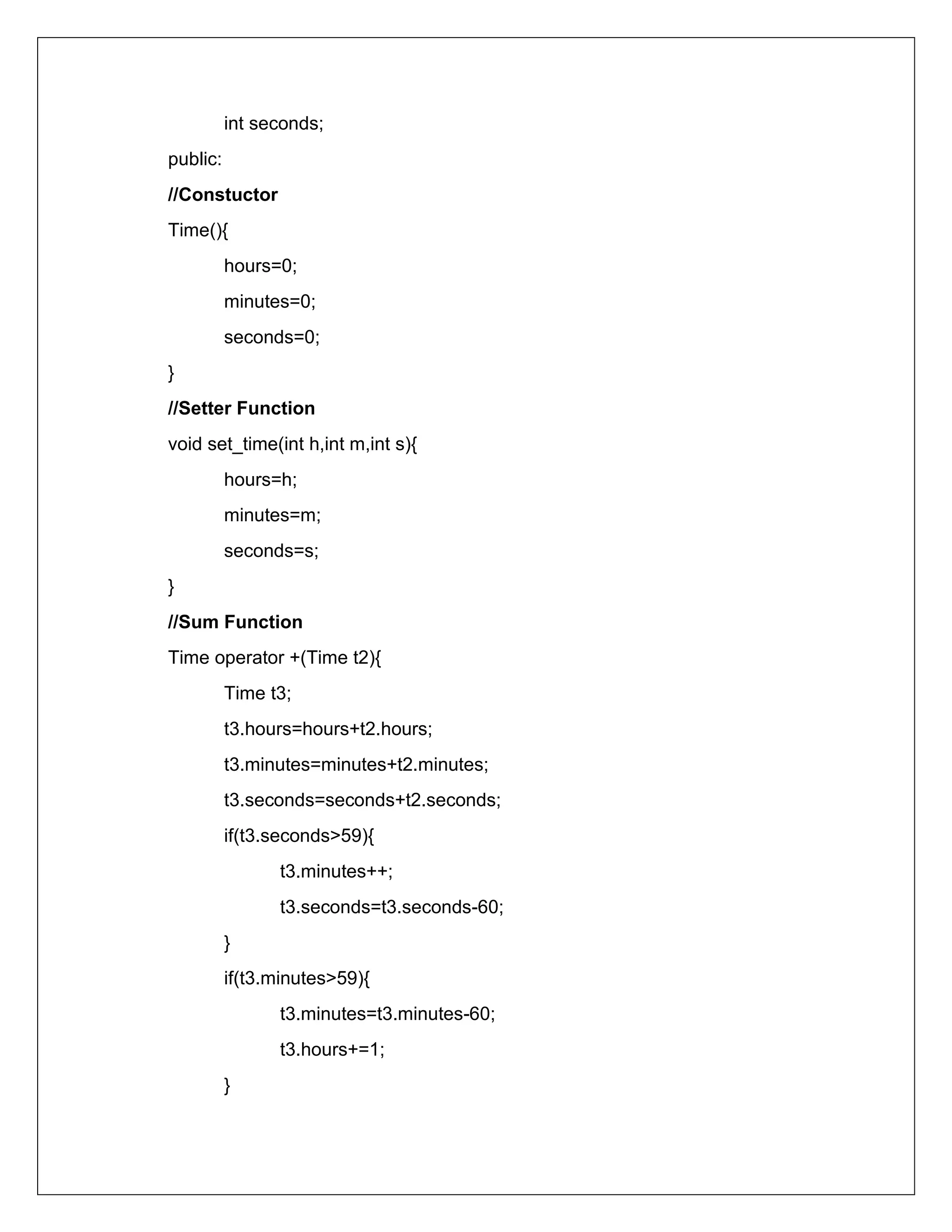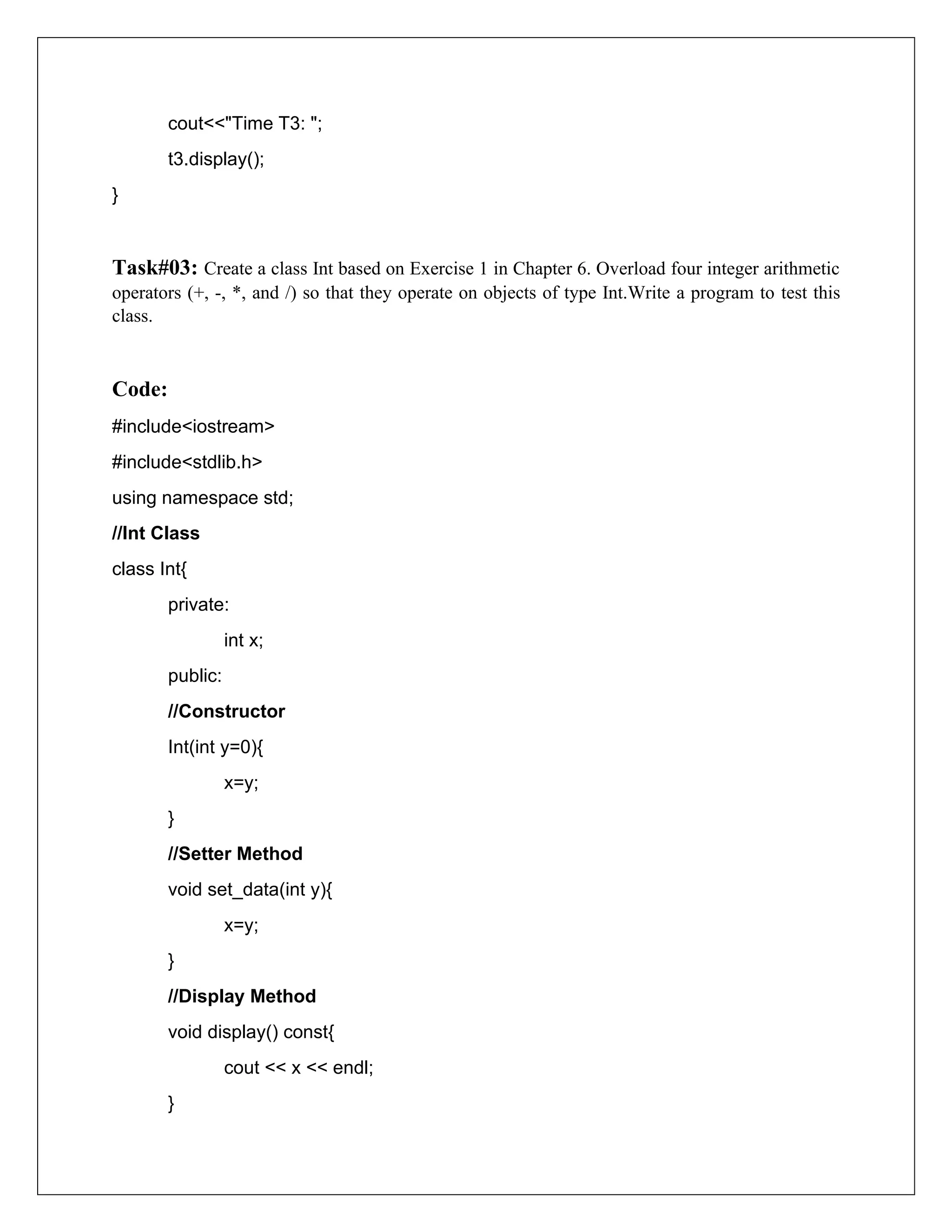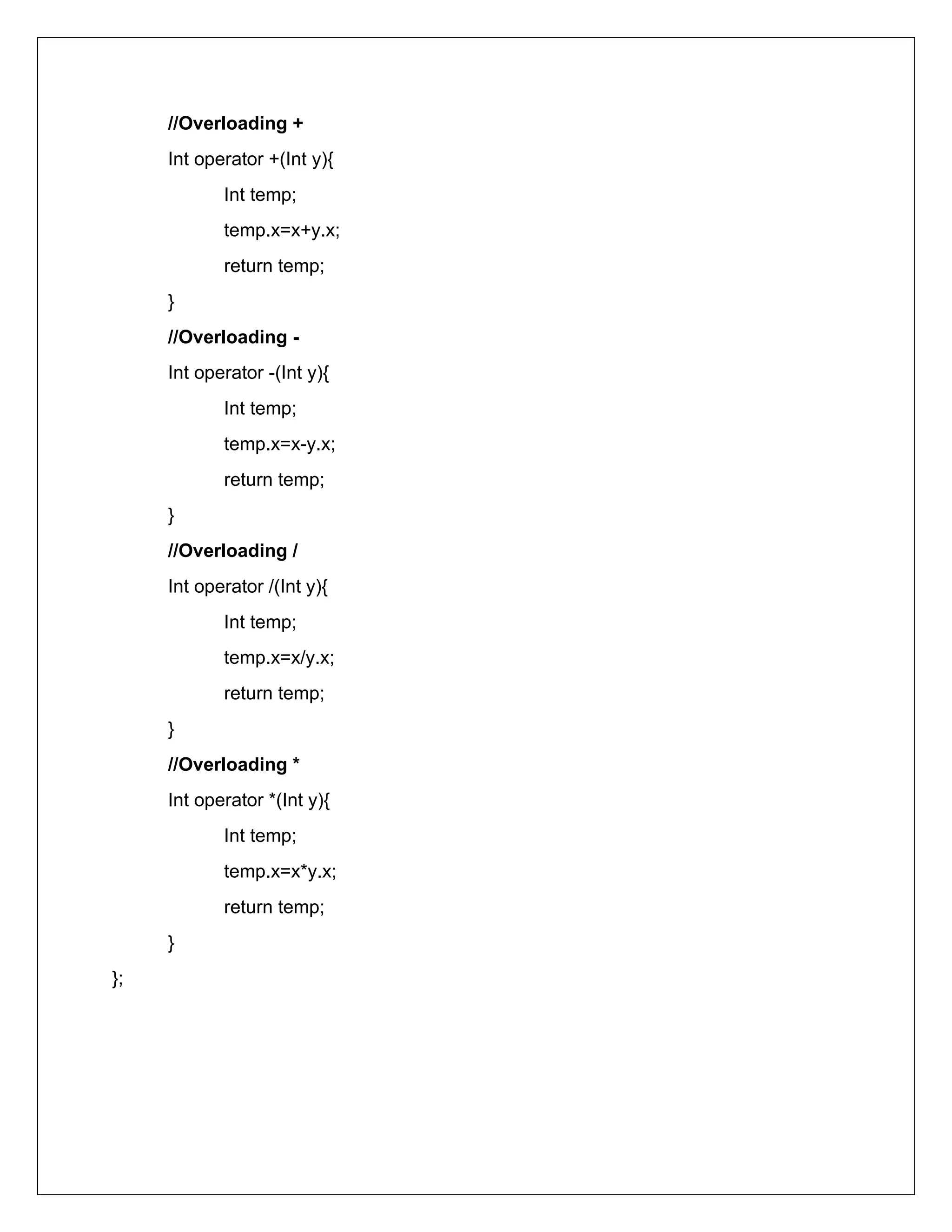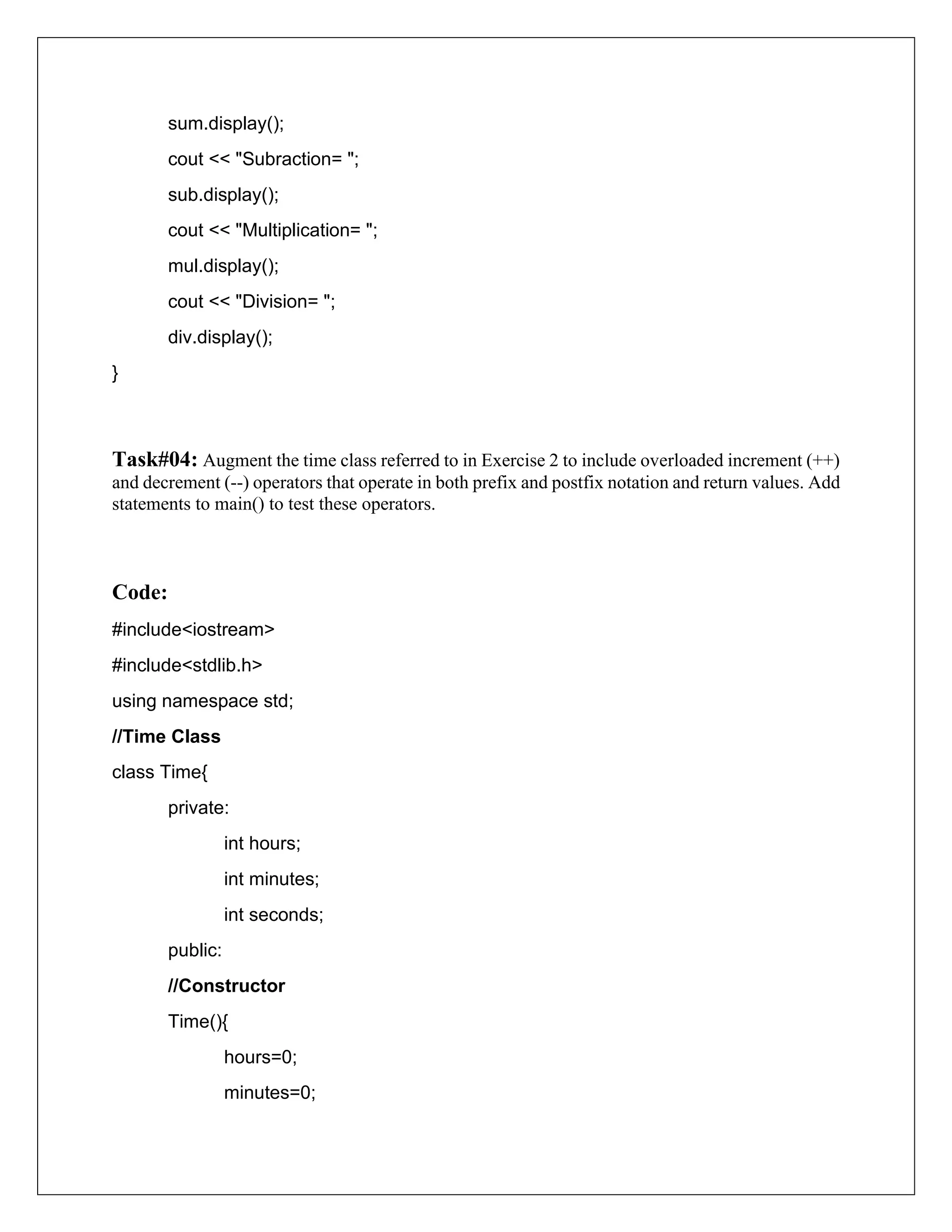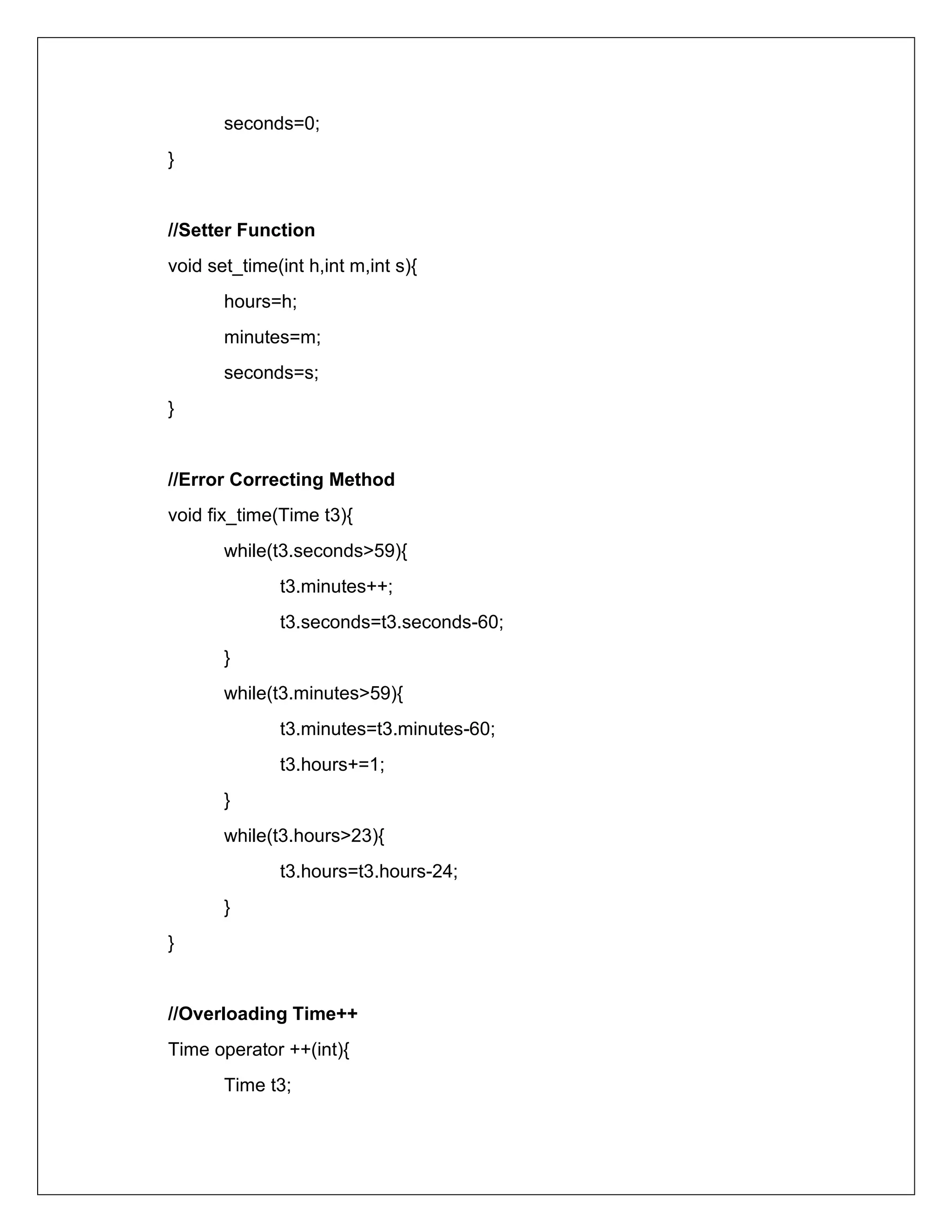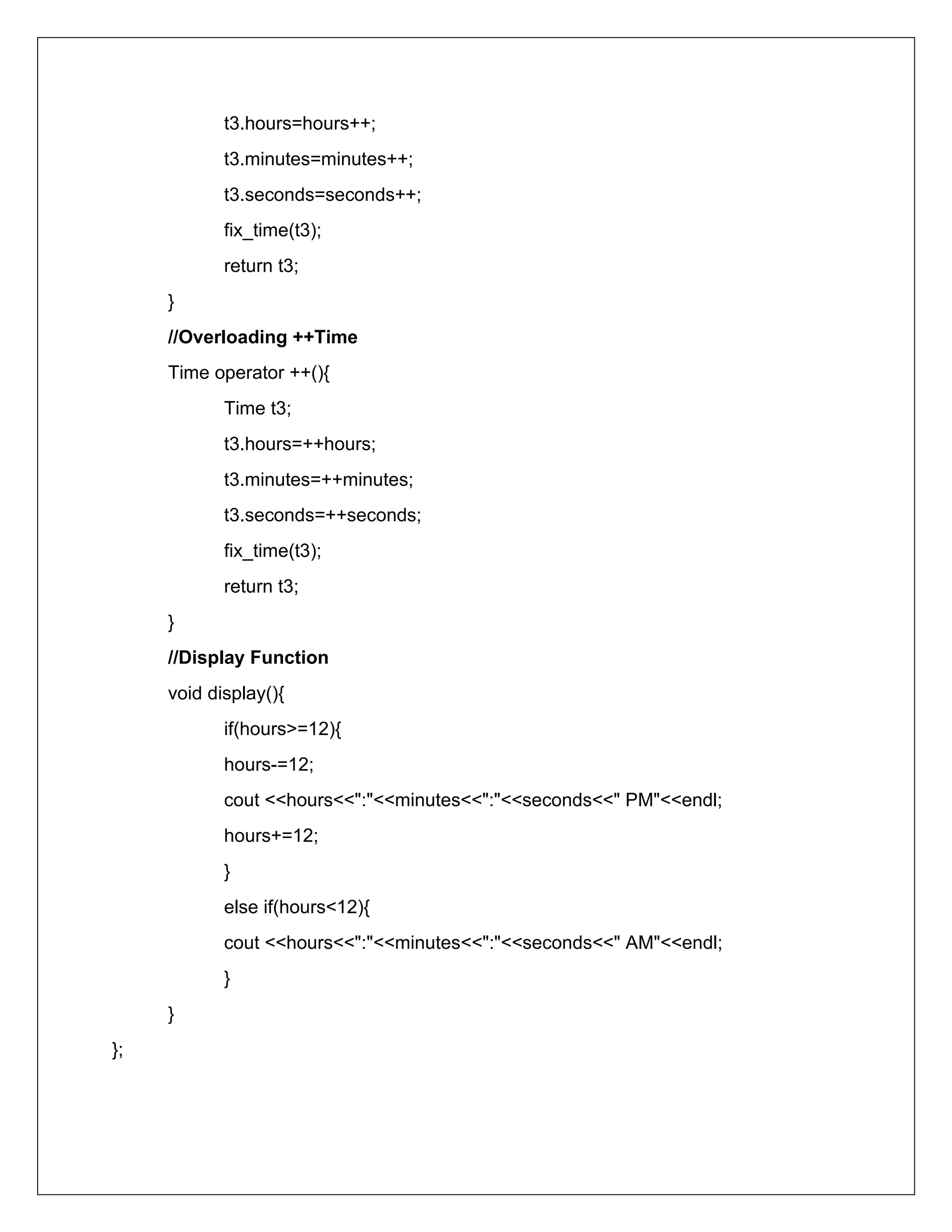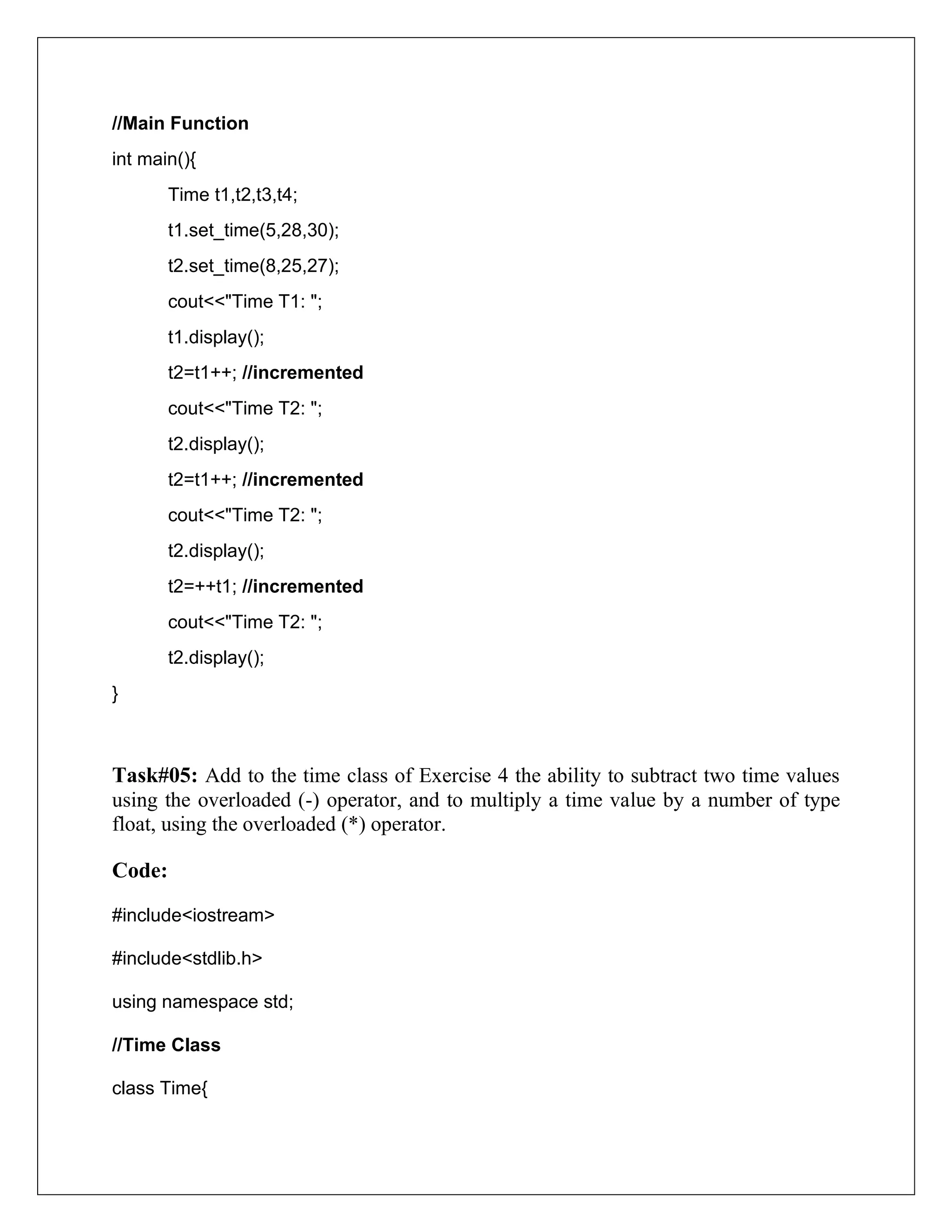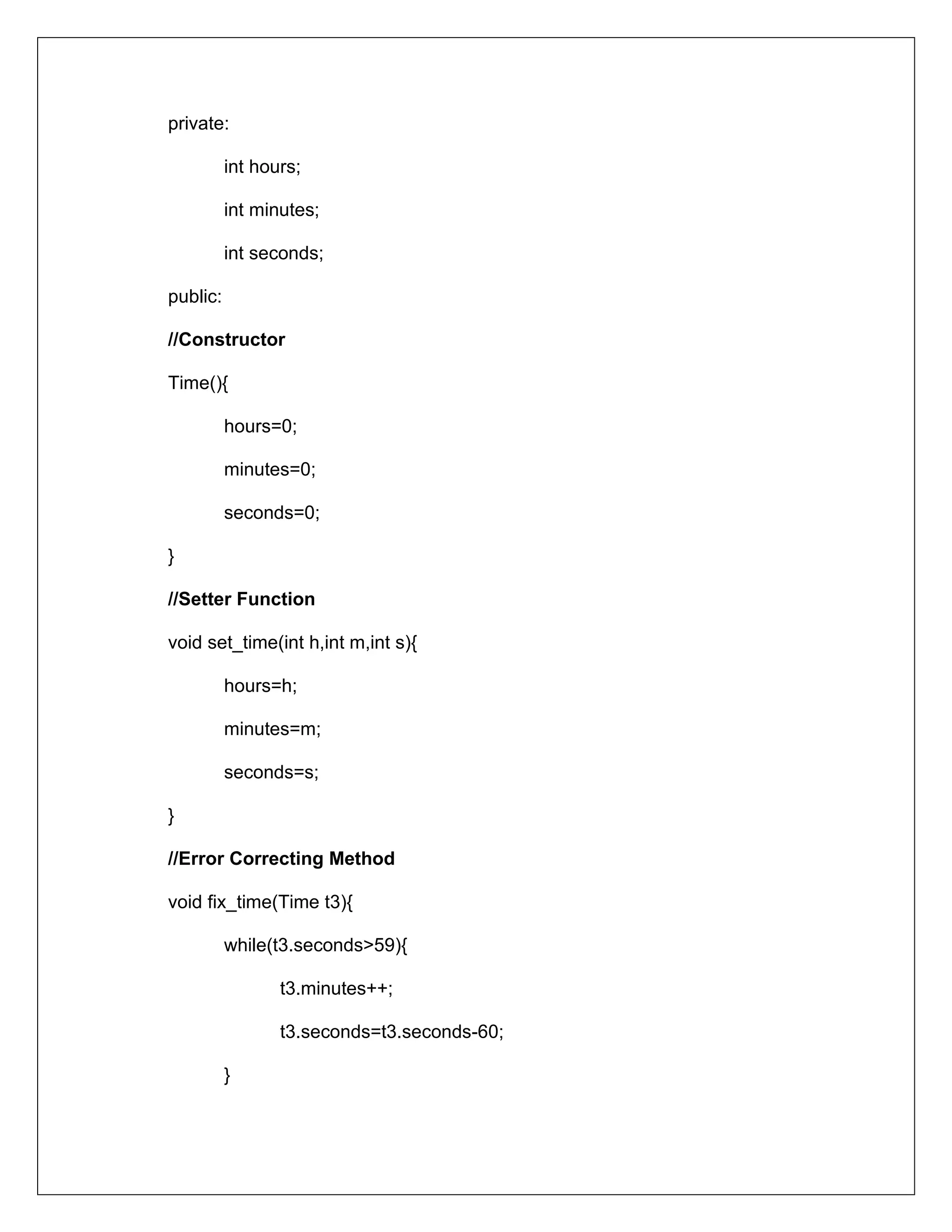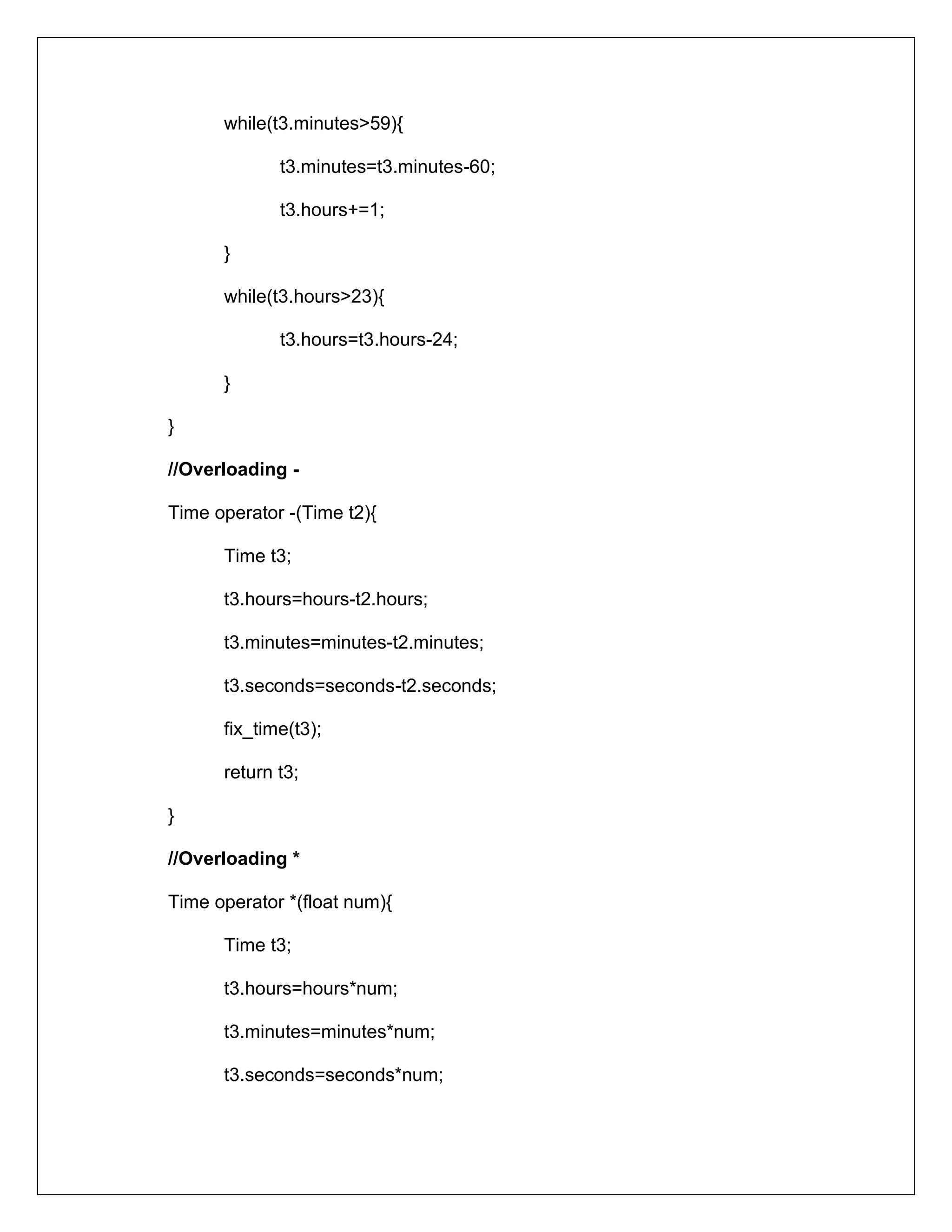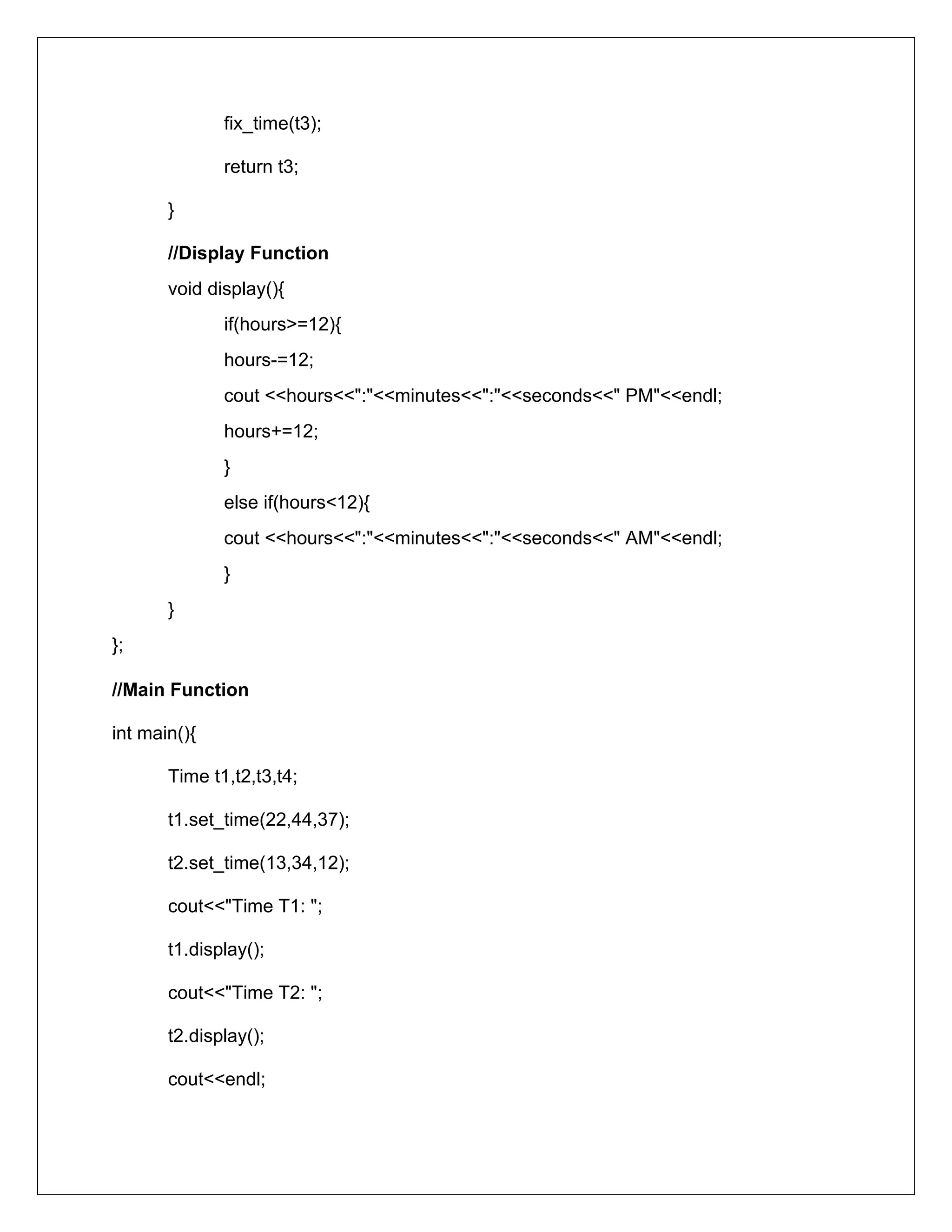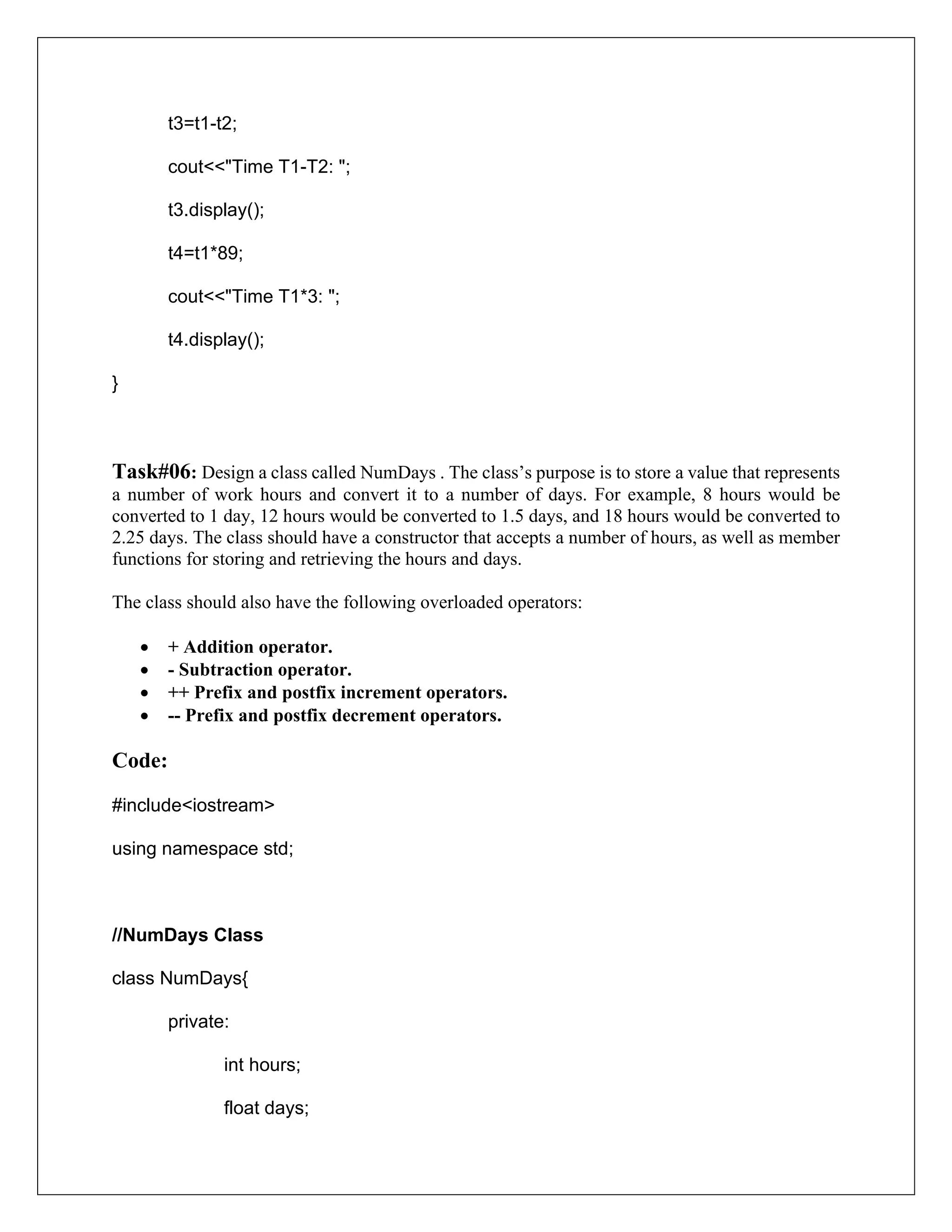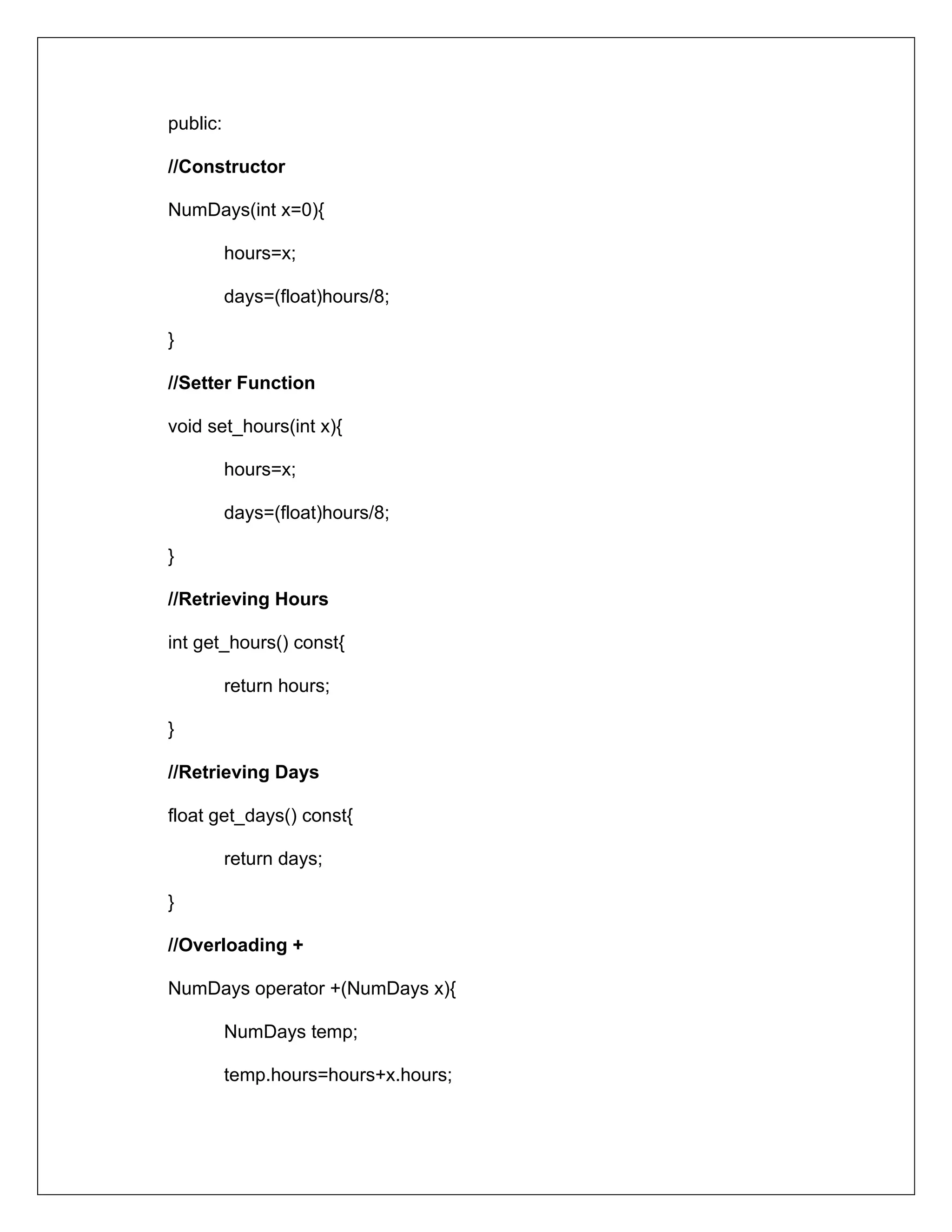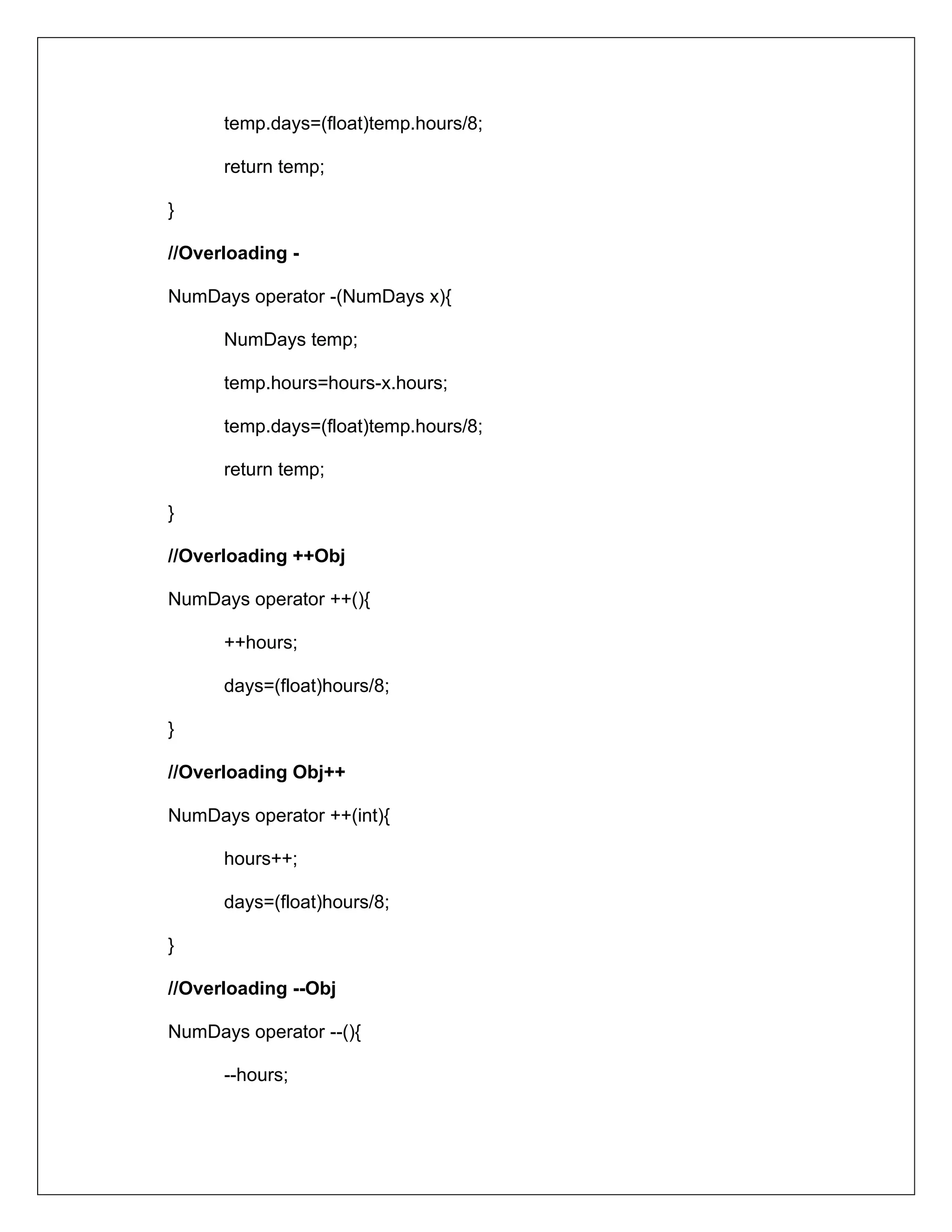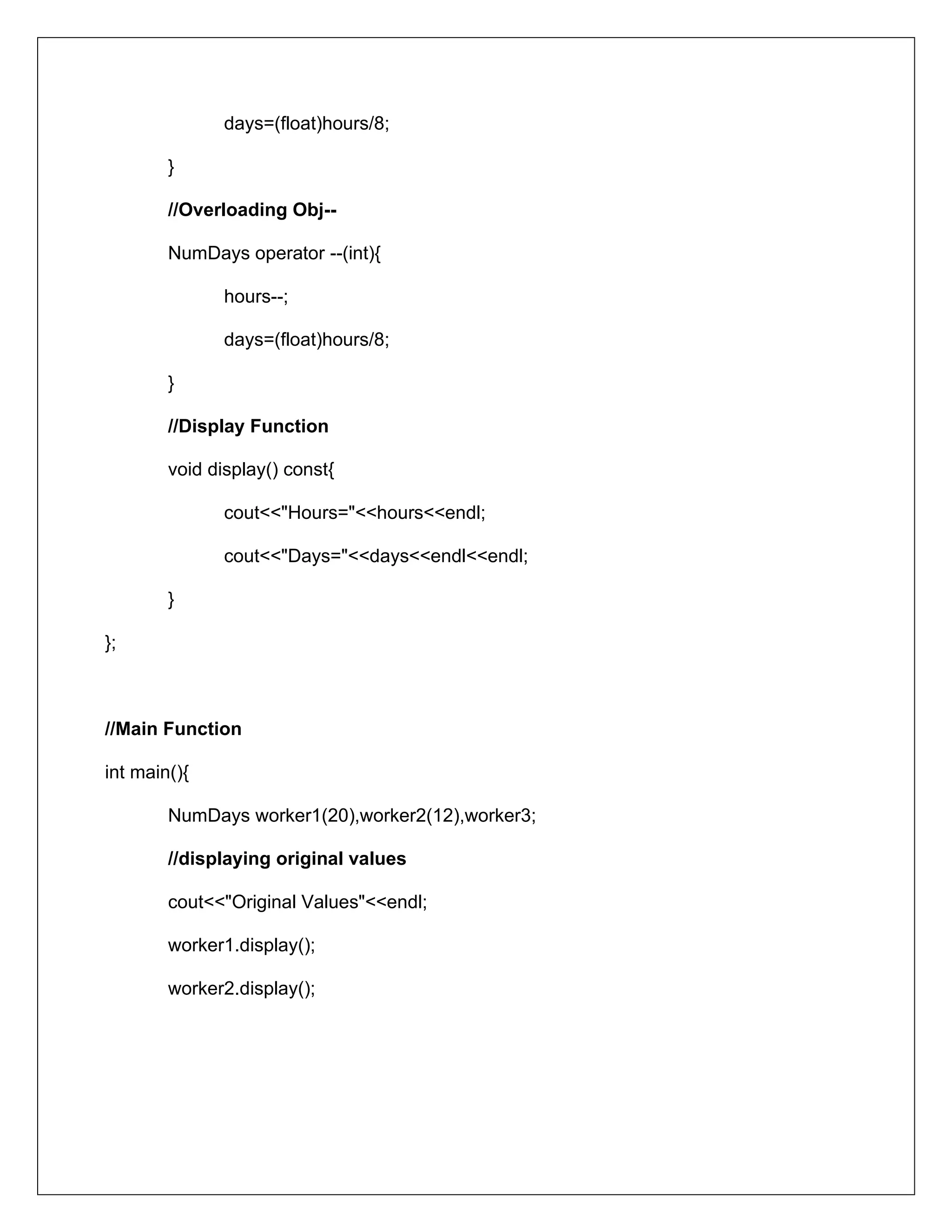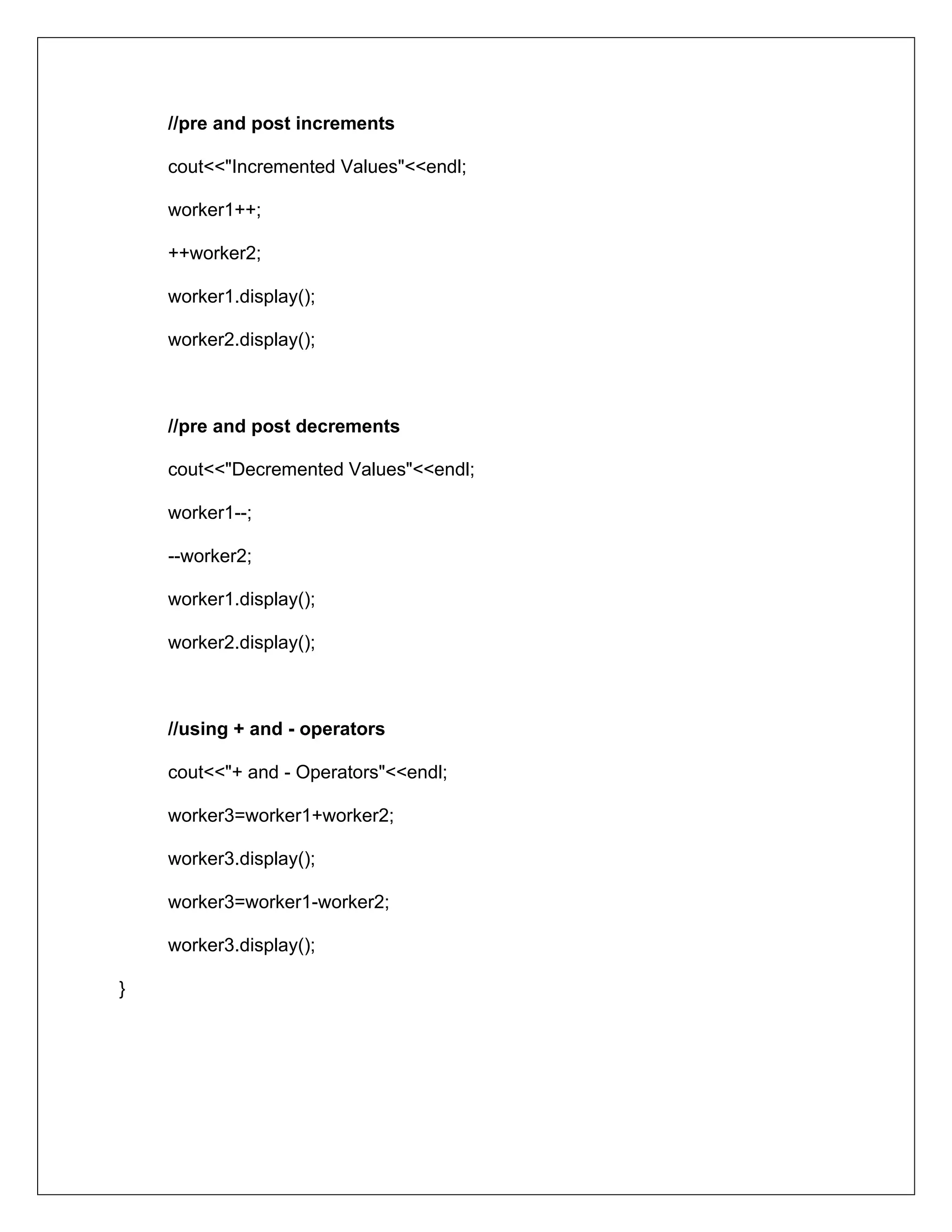The document contains 6 programming tasks involving object-oriented concepts like classes, operators overloading, constructors etc. in C++. The tasks include modifying existing classes to add new functionality like operator overloading for arithmetic, relational and logical operators. New classes are also designed from scratch implementing various features like constructors, member functions and operator overloading. Main functions are written to test the classes.
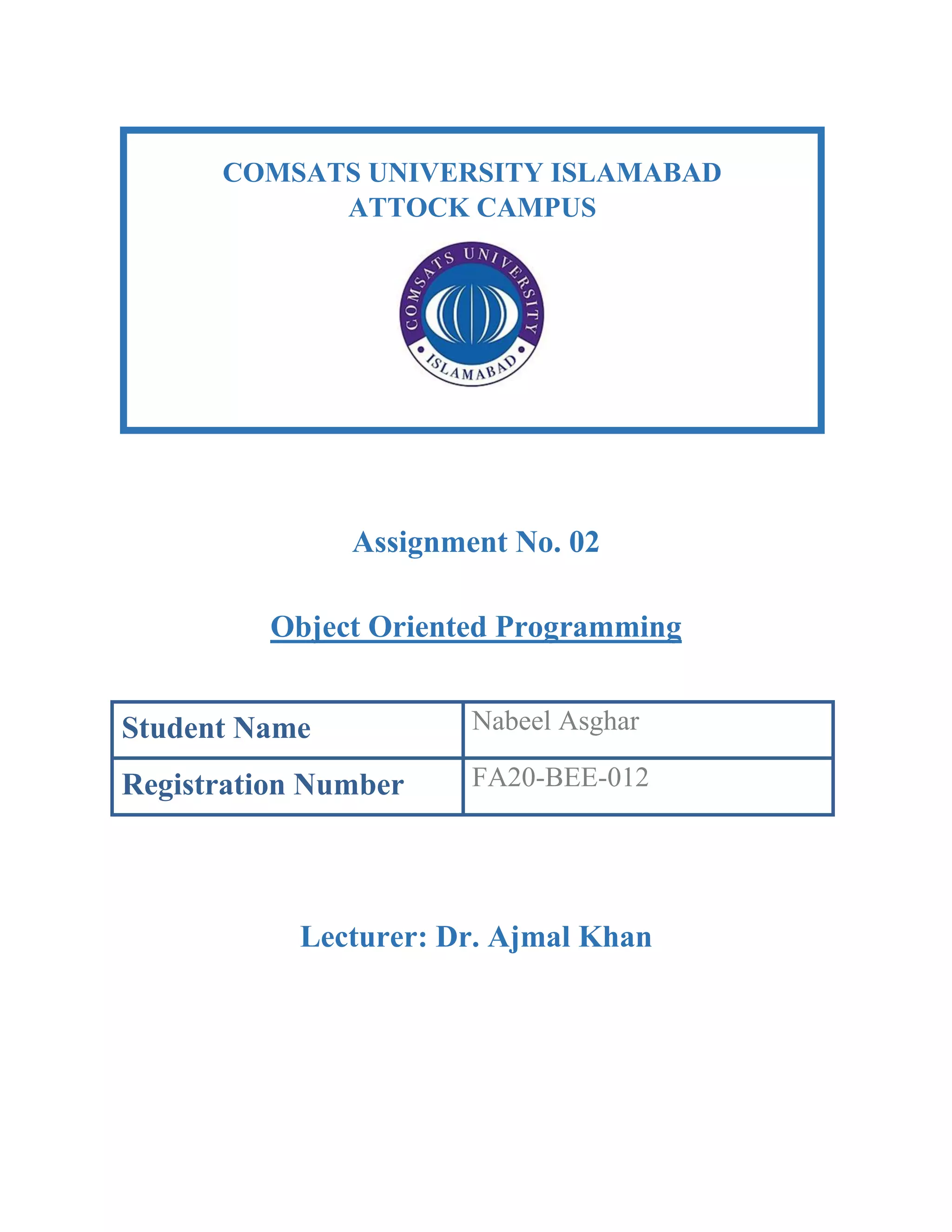
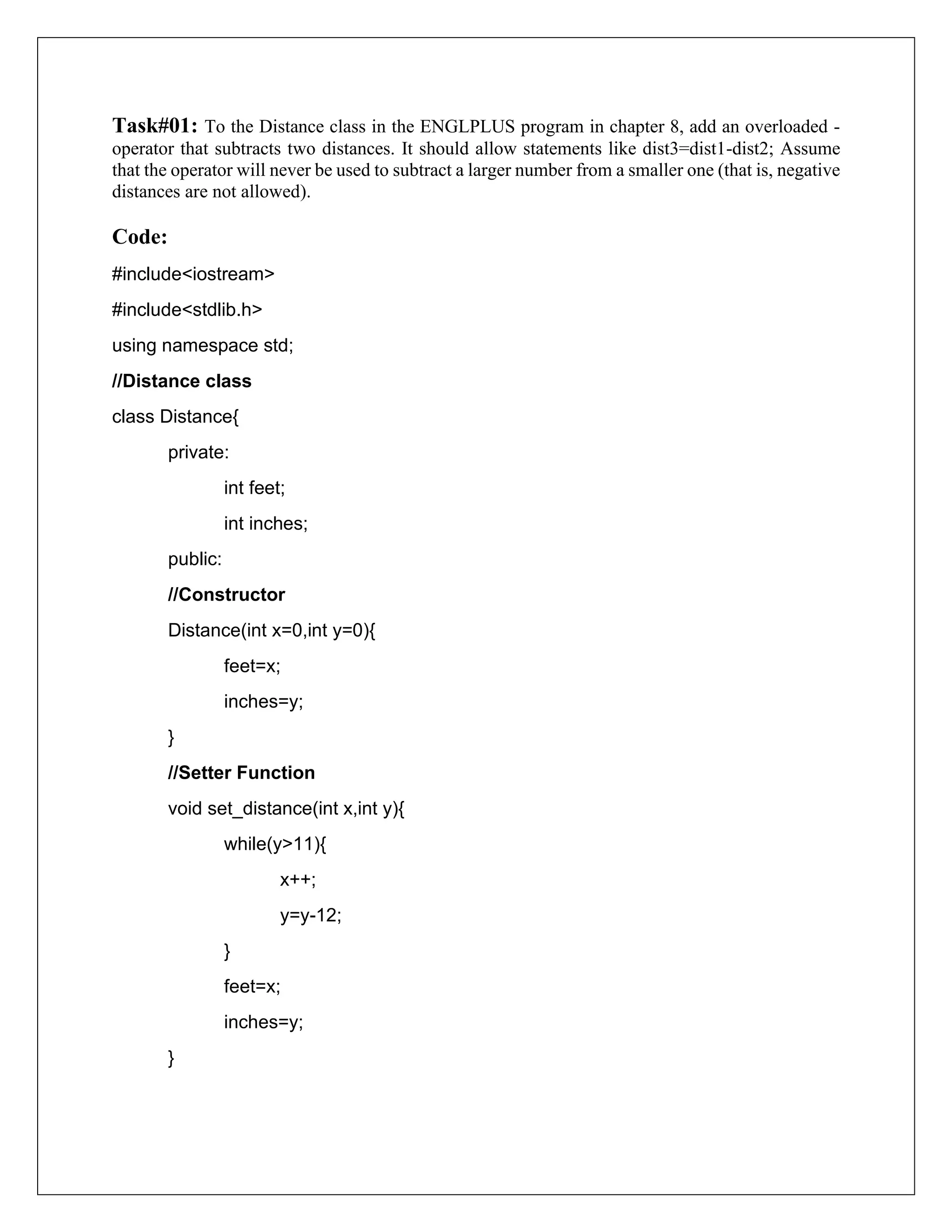
![//Display Method
void display() const{
cout<<feet<<"'"<<inches<<endl;
}
//Overloading -
Distance operator -(Distance d1){
Distance d2;
if(feet>d1.feet){
d2.feet=feet-d1.feet;
d2.inches=inches-d1.inches;
while(d2.inches<0){
d2.feet--;
d2.inches=abs(d2.inches);
}
}
else{
cout << "Subtraction not possible"<<endl;
}
return d2;
}
};
//Main Function
int main(){
int x,y;
Distance distance[3];
//Setting values
for(int i=0;i<2;i++){](https://image.slidesharecdn.com/oopassignment02-220112060837/75/Oop-assignment-02-3-2048.jpg)
![cout << "Enter Feet of Distance " << i+1<<":";
cin >> x;
cout << "Enter Inches of Distance " << i+1<<":";
cin >> y;
distance[i].set_distance(x,y);
cout << endl;
}
system("cls");
//Displaying the distances
distance[0].display();
distance[1].display();
distance[2]=distance[0]-distance[1];
distance[2].display();
}
Task#02: Modify the time class from Exercise 3 in Chapter 6 so that instead of a function
add_time() it uses the overloaded + operator to add two times. Write a program to test this class.
Code:
#include<iostream>
#include<stdlib.h>
using namespace std;
//Time Class
class Time{
private:
int hours;
int minutes;](https://image.slidesharecdn.com/oopassignment02-220112060837/75/Oop-assignment-02-4-2048.jpg)
